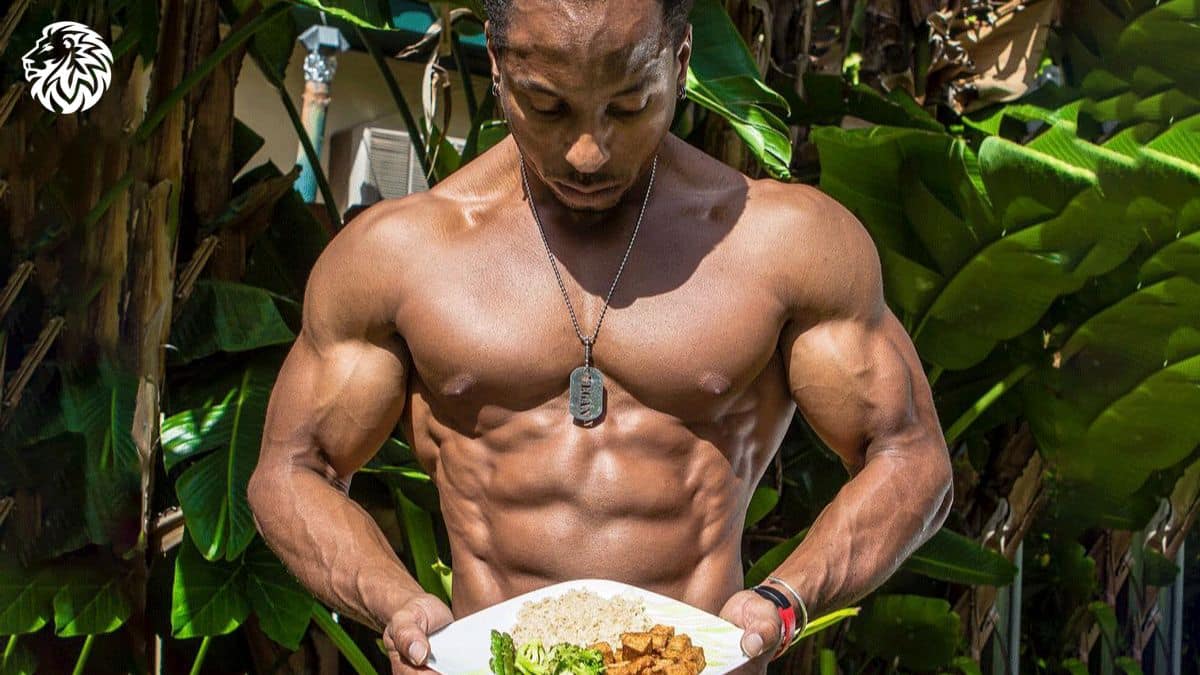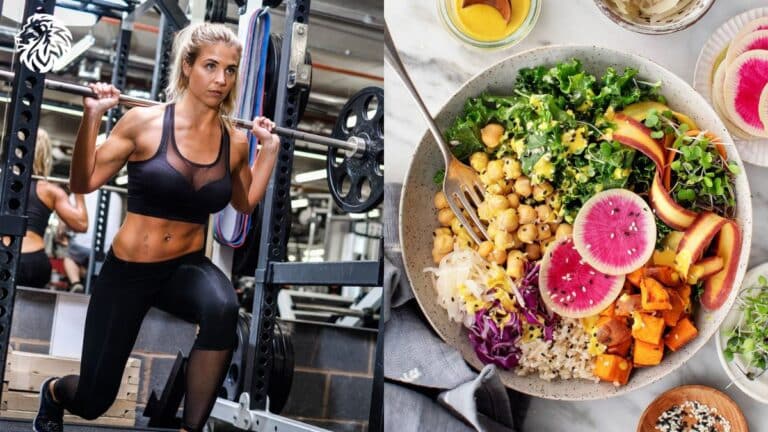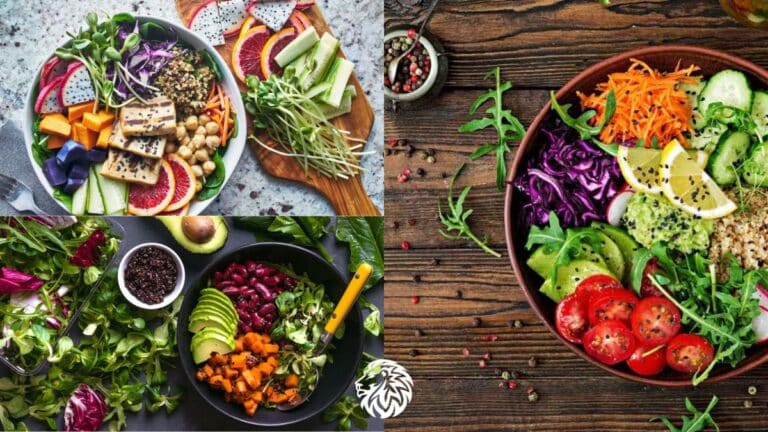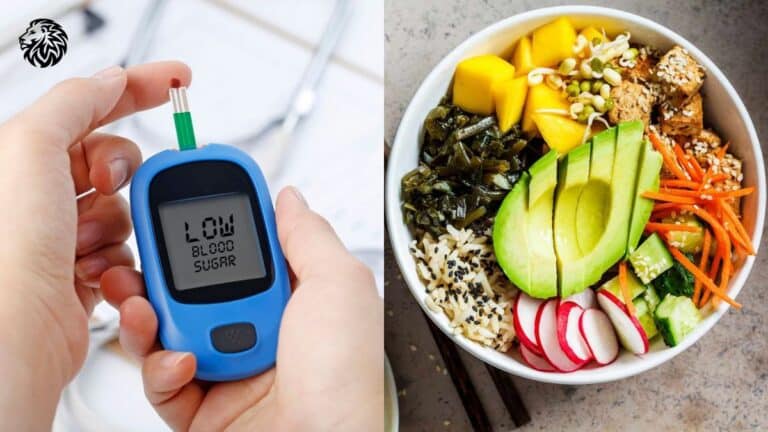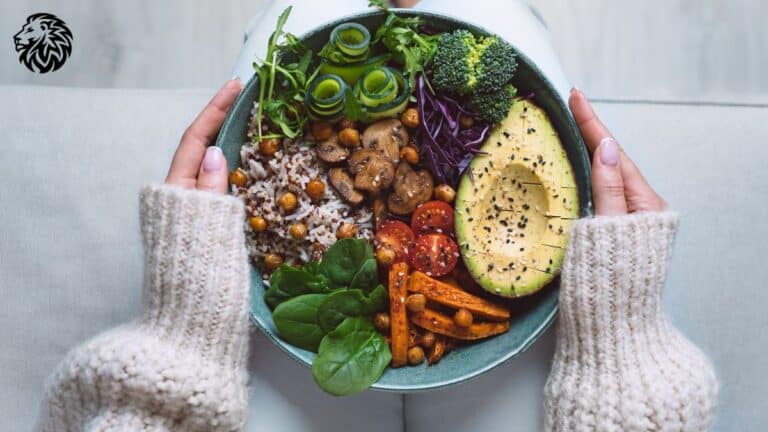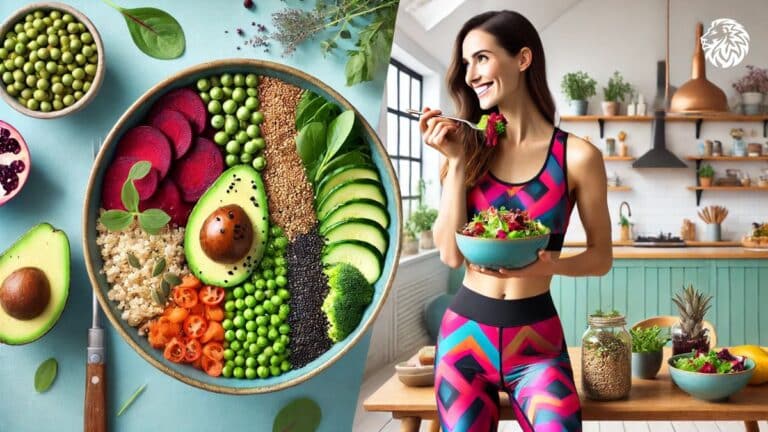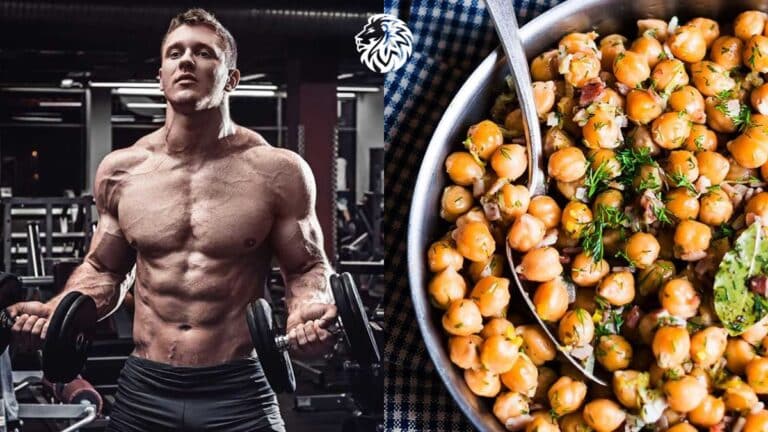Gaining muscle can have numerous benefits, including increased strength, improved physical performance, and better overall health. However, there is a common misconception that building muscle requires consuming animal products, making it difficult for vegans to achieve their fitness goals. In reality, a vegan diet can provide all the necessary nutrients for muscle growth with proper planning and knowledge. In this article, we will explore how to gain muscle while following a vegan diet, dispelling common misconceptions and providing practical tips for plant-based athletes.
Macronutrient Requirements for Muscle Gain on a Vegan Diet
To build muscle on a vegan diet, it is essential to understand the macronutrient requirements for muscle gain. Macronutrients include protein, carbohydrates, and fats, and they all play a critical role in supporting muscle growth.
Protein is particularly important for building and repairing muscle tissue, and it is made up of amino acids. Amino acids are the building blocks of protein, and they are essential for muscle growth and repair. Vegan athletes should aim to consume around 1.6-2.2 grams of protein per kilogram of body weight per day to support muscle growth.
Thankfully, it is not difficult to get all the essential amino acids needed to build muscle in a vegan diet. There are plenty of high-protein plant-based sources that will provide your body with everything it needs for muscle growth. Some examples of high-protein vegan foods include tofu, tempeh, lentils, chickpeas, beans, quinoa, nuts, and seeds.
In addition to protein, it is also important to consume adequate amounts of carbohydrates to fuel your workouts and support muscle growth. Carbohydrates provide the energy needed for intense exercise. Carbohydrates can also help to promote muscle glycogen storage, which is important for recovery and endurance.
Healthy fats are also crucial for overall health and can provide long-term energy for workouts. Good sources of healthy fats include avocados, nuts, seeds, and olive oil.
Overall, a well-planned vegan diet can provide all the necessary macronutrients for muscle growth. By consuming a variety of plant-based foods and paying attention to nutrient intake, vegans can build muscle just as effectively as non-vegans.
Designing a Vegan Muscle Building Meal Plan
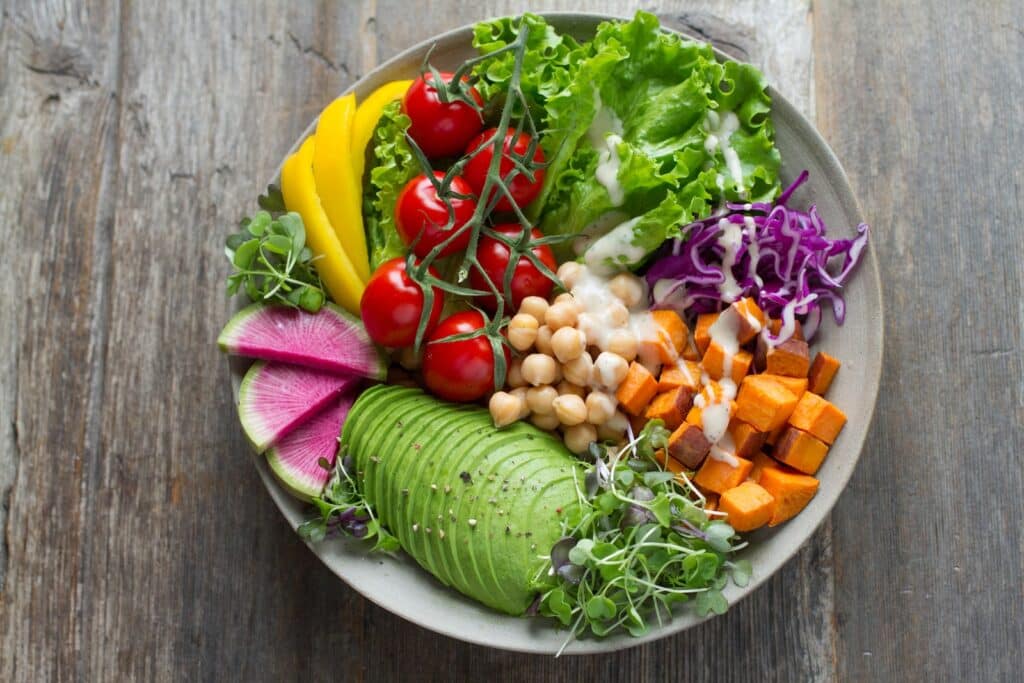
Meal planning and preparation are crucial for vegans looking to build muscle. By planning meals and ensuring adequate nutrient intake, vegan athletes can support muscle growth and achieve their fitness goals.
One way to ensure adequate nutrient intake is to include a variety of high-protein plant-based foods in each meal. For example, a vegan breakfast could include a tofu scramble with veggies, a slice of whole-grain toast with avocado, and a side of fruit. A vegan lunch could consist of a quinoa and black bean salad with roasted veggies and a side of hummus and carrots. For dinner, a vegan athlete could enjoy a lentil and vegetable curry with brown rice and a side of steamed greens.
Meal timing and frequency is also a key factor to consider in addition to the levels of protein consumed in a plant-based meal plan. Many athletes find it helpful to consume protein and carbohydrates immediately after their workouts to support muscle recovery and glycogen replenishment. Vegan options for post-workout snacks include a smoothie with fruit, soy milk, and protein powder, or a peanut butter and banana sandwich on whole-grain bread.
Lastly, it is important to be consistent with meal planning and preparation to ensure adequate nutrient intake and support muscle growth. This may involve prepping meals and snacks in advance or carrying portable, nutrient-dense snacks such as trail mix, fruit, or protein bars while on the go.
By following these guidelines and incorporating a variety of high-protein plant-based foods into their diets, vegan athletes can design a meal plan that supports muscle growth and overall health.
Strength Training for Vegan Muscle Gain
Strength training is a crucial component of building muscle, regardless of diet. It involves using resistance to challenge the muscles, causing them to adapt and grow stronger over time. Vegan athletes can use a variety of exercises and workout routines to support muscle growth and achieve their fitness goals.
Compound exercises that work multiple muscle groups at once can be very effective for building overall strength and muscle mass. Examples of these compound exercises include squats, pull-ups, deadlifts, dips, and bench press. Isolation exercises that target specific muscle groups, such as bicep curls or leg extensions, can also be incorporated to target specific areas of the body.
In terms of workout routines, it is important to vary the intensity and volume of the exercises to continually challenge the muscles and promote growth. A popular approach is to split workouts into specific muscle groups, such as upper body, lower body, and core, and to perform each workout 1-3 times per week.
Proper form and technique are crucial for minimizing the risk of injury and maximizing the effectiveness of each exercise. It is important to start with lighter weights and gradually increase the resistance as strength and technique improve. Many athletes find it helpful to work with a certified personal trainer or strength coach to ensure proper form and technique.
Overall, strength training is an essential component of building muscle, and vegan athletes can use a variety of exercises and workout routines to support their fitness goals. By using proper form and technique and varying the intensity and volume of their workouts, vegans can achieve impressive gains in strength and muscle mass.
Supplements for Vegan Muscle Gain
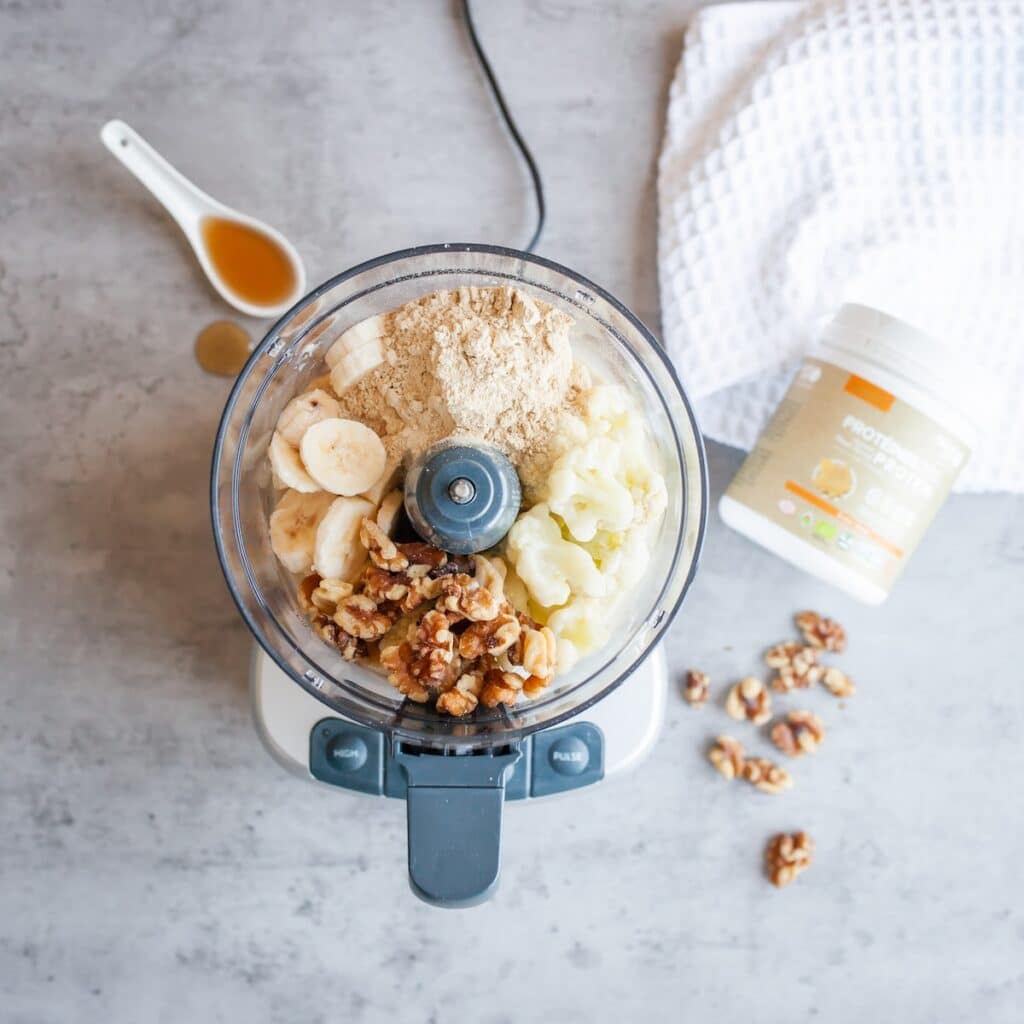
Supplements can be a useful tool for vegan athletes looking to build muscle, providing an additional source of nutrients to support muscle growth and recovery. However, it is important to approach supplements with caution and to only use them in conjunction with a well-rounded diet and exercise program.
Some types of supplements that can aid in muscle growth for vegan athletes include:
- Plant-based protein powders: Vegan protein powders, such as pea, hemp, and soy protein, can provide an easy and convenient source of protein to support muscle growth and recovery.
- Creatine: Creatine is a naturally occurring compound found in muscle tissue that can help to improve strength and muscle mass. Vegan athletes can find creatine supplements that are derived from non-animal sources.
- Beta-alanine: Beta-alanine is an amino acid that can help to increase muscle endurance and reduce fatigue during workouts.
- BCAAs: Branched-chain amino acids (BCAAs) are a type of amino acid that can help to prevent muscle breakdown and support muscle recovery.
While supplements can be helpful, it is important to approach them with caution and to consider safety considerations and potential side effects. Always consult with a healthcare professional or registered dietitian before beginning any supplement regimen, and be wary of supplements that make bold claims or promises. It is also important to carefully read labels and follow dosing instructions to avoid potential side effects.
In summary, supplements can be a helpful tool for vegan athletes looking to build muscle, but they should be used in conjunction with a well-rounded diet and exercise program. Always approach supplements with caution, and consider safety and potential side effects before beginning any supplement regimen.
Rest and Recovery for Vegan Muscle Gain
Rest and recovery are essential components of building muscle, as they allow the body to repair and rebuild muscle tissue that is broken down during exercise. Vegan athletes should prioritize rest and recovery to support muscle growth and overall health.
Getting adequate sleep is one of the most important aspects of rest and recovery. Aim for 7-9 hours of sleep each night to support muscle growth and recovery. Additionally, taking short naps during the day can also help promote recovery.
Stretching and massage can also help promote muscle recovery and reduce soreness. Incorporating dynamic stretching before workouts and static stretching after workouts can help to improve flexibility and reduce the risk of injury. Massage, whether self-massage or from a professional, can also help to reduce muscle tension and promote relaxation.
Finally, it is important to allow for adequate rest days in between workouts to allow the body to recover fully. Overtraining can impede muscle growth, so it is important to listen to your body and give it the rest it needs.
In summary, rest and recovery are crucial components of building muscle, and vegan athletes should prioritize getting enough sleep, incorporating stretching and massage, and allowing for adequate rest days in between workouts. By taking care of their bodies and allowing for proper recovery, vegan athletes can achieve impressive gains in strength and muscle mass.
Conclusion
Building muscle on a vegan diet is entirely possible with proper planning and knowledge. By understanding the macronutrient requirements for muscle gain, designing a well-rounded meal plan, incorporating strength training, and prioritizing rest and recovery, vegan athletes can achieve impressive gains in strength and muscle mass.
Key takeaways for vegan muscle gain include:
- Consuming adequate amounts of protein, carbohydrates, and healthy fats through plant-based sources
- Incorporating compound exercises and varying the intensity and volume of workouts
- Using supplements with caution and only in conjunction with a well-rounded diet and exercise program
- Prioritizing rest and recovery through adequate sleep, stretching, and allowing for rest days
By following these guidelines, vegan athletes can achieve their fitness goals and build muscle just as effectively as non-vegans. So, if you’re a vegan athlete looking to build muscle, don’t be discouraged – give it a try and see what you’re capable of achieving on a plant-based diet.
